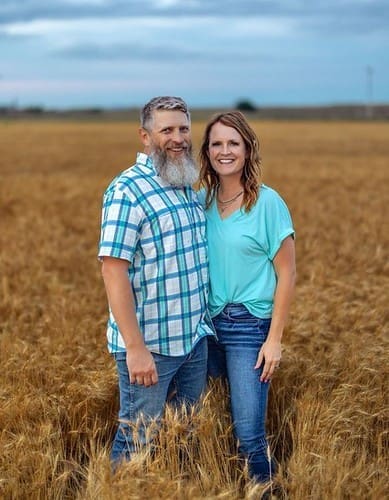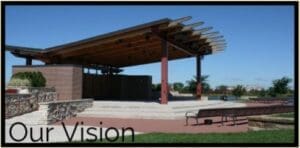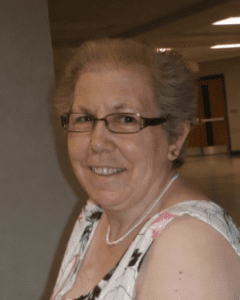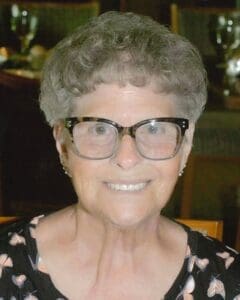By Ron Wilson, director of the Huck Boyd National Institute for Rural Development at Kansas State University
How can a rural family add value to their beef cattle production? Holy cow, here’s an idea: What if they could market their grass-fed beef directly to consumers?
Today we’ll meet a family that is using an idea to market grass-fed beef directly and sending their products across the nation.
Michelle and Matt Canny are the owners and founders of Wholly Cow Market in Johnson City.
Michelle is from Rose Hill and attended Kansas State University. One day in the cafeteria in a university residence hall, she happened to visit with a fellow student named Matt. They got to talking about the experiences they each had in 4-H.
When she got back to her room, she told her roommate, “That guy is going to make someone a good husband someday.” A few years later, she became the person for whom he was the good husband.
Michelle earned her degree in international marketing. Matt got his degree in agricultural economics with an emphasis in animal science. Upon graduation, they moved to Matt’s family farm in southwest Kansas.
“We figured we would move back for a little bit,” Canny said. Twenty-four years later, they are still there. They have a teenager and two adult children.
In 1885, Matt Canny’s great-great-grandfather Henry Bearman took the train from Cincinnati to Syracuse, Kansas. From there, he walked 25 miles south to where he built a dugout on his homestead. Bearman tried raising traditional eastern U.S. crops but found they didn’t grow well in the high plains of Kansas. However, he found that grazing cattle did better.
Matt Canny is now the fifth generation on the family farm. Matt and Michelle live in the house in which Matt was raised, which is next door to the original homestead. Michelle has learned the cattle business from the ground up.
“When we started I didn’t know a heifer from a Hereford,” she said.
In the late 2010s, the Cannys were looking for a way to add value to their products. Since they didn’t have irrigation, they couldn’t raise a lot of corn to feed to their cattle so they decided to fatten them on grass.
“We put a sign out by the highway that said, ‘Grass-fed beef for sale,’” Canny said. “We found that people were interested.”
The Cannys finish their cattle on open pastures. “We never use antibiotics or hormones,” she said.
Their goal is to produce a wholesome product, so they called it Wholly Cow. They started taking their beef to farmer’s markets and joined a Kansas Department of Agriculture program called From the Land of Kansas.
They also refined their process for raising grass-fed beef. They purchased cattle with genetics that were better suited for finishing on grass, found that dry aging of the meat wasn’t necessary, and learned which grasses resulted in the best flavor of the beef.
In 2021, they acquired a local restaurant, now called Wholly Cow Market Café,which offers breakfast, lunch and dinner and features a historic operating soda fountain along with other Kansas-made products for sale. They also offer their pasture-raised chicken and even salmon from friends who make a regular fishing trip to Alaska.
“When people bite into our burgers, they will say, ‘Holy cow,’” Canny said. Steaks, burgers and the open face hot beef sandwich are popular.
Wholly Cow products are available at the restaurant, at a Wichita retail location, and online at www.whollycowmarket.com. They have shipped products from New York to California. That’s impressive for a business located in the rural community of Johnson City, population 1,334 people. Now, that’s rural.
Canny continues to add value. “We’re converting our restaurant to use beef tallow and I’m developing a new skin care line (from our beef products),” she said. “We’ll offer a beard balm and a skin lotion that we call Ranchhands.”
How can a family use the products from a whole cow and add value to their production? Matt and Michelle Canny are making a difference with their innovation and diversification in the beef industry while shipping products coast to coast.
Holy cow!
Audio and text files of Kansas Profiles are available at https://www.huckboydinstitute.org/kansas-profiles/. For more information about the Huck Boyd Institute, interested persons can visit http://www.huckboydinstitute.org.













